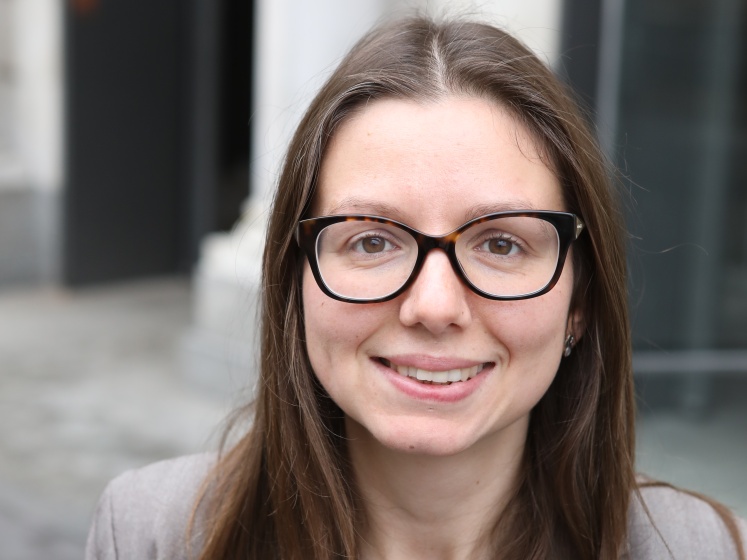 Christina Easton
Christina Easton
This year Christina was nominated by her department for the LSE Class Teacher Award and by her students for the ‘excellent feedback and communication’ LSE Students’ Union Award.
Prior to her time at LSE, Christina taught Philosophy and Religious Studies to 11-18 year olds.
What do you enjoy most about working with students?
I love seeing students getting excited about Philosophy. Sometimes you can hear it in their voices as they discuss a topic: their surprise at where an argument is leading, their passion for what they’re saying, or simply just them being ‘in the moment’ enjoying the debate.
What tips do you have for engaging students?
I find beginning every class with a ‘starter’ – a quick, interactive activity that gets everyone straight into thinking about the topic – is a good way of engaging students. I try to make this accessible – something everyone can have a go at, so that no one is turned off from the start.
You previously taught Philosophy and Religious Studies to 11-18 year olds. Do you think your experience as a secondary school teacher has helped you as a university class teacher?
It has definitely helped, yes. There are some similar challenges. For example, differentiation (meeting the learning needs of different individuals) is a challenge in university teaching too. When I’m planning my teaching, I have to think about how to make sure everyone is on board with the main concepts, whilst also allowing time for discussion of the trickiest bits.
Obviously the level at which we’re accessing the subject is higher, so that’s a clear difference.
Also, with teaching adults there is an expectation of good behaviour but no rule book saying things like ‘phone out in class = detention’ to back up those expectations!
What do you think is the most important role of a teacher?
To help students understand and critically engage with the topics, which first requires them to be enthused by the topics.
In your nomination, the friendly atmosphere you create in class was noted. What advice would you give to new teachers hoping to build rapport with students?
Learning names asap is a must! Also, if you get a chance before or after classes, try to speak to students about topics unrelated to the course, to get to know them better.
How do you balance your research and teaching responsibilities?
I assign one day for teaching preparation, and another for teaching and seeing students. The remaining three working days are for research. I try not to budge from this, but it does creep in throughout the week, particularly with email being such a frequent means of communication.
Do you think teaching has helped you in your PhD work and vice versa?
It’s good for me to be engaged in such wide-ranging philosophical topics rather than just thinking about the narrow area of my PhD thesis. And teaching these topics helps you better understand them yourself. That’s one theory for why older siblings tend to do better academically – they are constantly explaining things to their young siblings!
I think (and hope) the reverse is also true: studying for my PhD has made me a better philosopher and therefore better at teaching Philosophy.
Have you used any innovative/unusual teaching methods? If so, what methods have you used and why?
I occasionally start with a short YouTube clip, which might appear to the outsider to have nothing to do with the topic, but links the topic with everyday life and helps get discussion going.
I also do a lot of activities that require everyone to think about where they stand on some question, such as asking students to stand up or sit down, move to a position in the room, or put a mark on a page, depending on what their view is. That way, no one can get away from thinking about it, but it also avoids singling out shy students.
How have you supported career development for your students?
I've had students talk to me in office hours about their future career options, and a small number have wanted to know about school teaching.
I’ve also written lots of references. To support you in that, it’s a good idea to have a few notes somewhere that’s not on LSEForYou, for you to refer to in future years. For example, write some brief notes on how students engaged in classes and how they performed on their formative essays.
What would you say is the hardest part of being a teacher?
There’s always more you can do – more time preparing your teaching, more time seeing students outside of classes, and so on. Realising this and knowing that you have to stop is really hard!
You can follow Christina on @ChrEaston